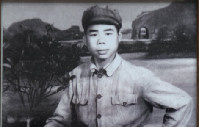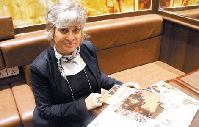Helping underprivileged children help themselves
With funding from the United Nations Population Fund, Gaoshan's team gave youth leadership training to groups of migrant children and left-behind children in Beijing. The children then returned to their provinces to deliver the lessons in courses lasting three or four sessions.
Gaoshan says he believes such peer-topeer training can help address the unequal distribution of resources between rural and urban areas.
"I hope the government can realize that young people can initiate change. I want them to support more leaders of young people, and particularly leaders of less privileged groups. This is a sustainable way forward," he said.
Inspired by his work at CYN, Gaoshan is now studying for a master's degree in global health at Duke University. He hopes to encourage cooperation between developing countries on healthcare issues, seeking to empower poor children through health education.
"During my time at CYN, I thought this model of peer-to-peer training was so helpful for other emerging regions like sub-Saharan Africa, South America and some Asian countries," he said.
Later this year, he will accompany his professor to Sierra Leone, to work alongside vocational training students who want to become health workers, gaining experience on an HIV awareness training program.
After graduation, Gaoshan says he is scheduled to take a fellowship at UNFPA, and after that he will return to China to start his work in the public health sector.
"I have a strong motivation to change the world. My personal vision is to make the world a better place, to create a more friendly educational environment," he said.
























